As President-Elect Trump prepares for the White House, questions arise about campaign promises, presidential realities, and transition team appointments, against the backdrop of a troubled and divided nation.
With a campaign strategy often defined by negativity and divisive rhetoric, Donald J. Trump won the election for President of the United States in an historic upset for the Republican party. While Trump’s campaign won traditionally Democratic voters by promising to change the way Washington works and to restore American jobs, it also alienated women, Latino, and Muslim voters, breeding concerns for their safety and freedoms. As Trump and his staff transition from the campaign to the White House, issues have arisen about questionable transition team choices, and how Trump’s campaign promises will translate to a Trump presidency. Already, there are strong indications that Mr. Trump will back out of many promises, instead favoring a more traditional Republican agenda.
We are now all rooting for his success in uniting and leading the country.
– President Barack Obama
While Donald Trump may face a reluctant electorate, an established Republican party has been reinvigorated by his success. Trump’s victory paved the way for a Republican victory in Congress, allowing the party to maintain majorities in both houses of Congress. Republicans now have control of two bodies of government, with the opportunity to fulfill the promises made by their platform. However, whether Congressional leaders will maintain interest in Trump’s campaign platform remains to be seen.
What exactly were the final results?
Early forecasts of the election had predicted that Republicans would retain control of the House of Representatives, but lose control of the Senate. On Tuesday, Democrats gained only two extra seats in the Senate, leaving the Republicans a slim majority. Rep. Tammy Duckworth (D-IL), a double amputee Iraq war veteran, defeated incumbent Senator Mark Kirk (R-IL), and in Nevada, Harry Reid’s hand-picked successor, former Nevada Attorney General Catherine Masto, won a hotly contested election against Rep. Joe Heck (R-NV). Surprise victories for Senators Pat Toomey (R-PA) and Ron Johnson (R-WI) in Wisconsin allowed Republicans to maintain control of the U.S. Senate.
In the House of Representatives, Republicans maintained their majority, 239 to 193. Democrats elected five representatives to seats previously held by Republicans, including Stephanie Murphy (D-FL) of Florida, Brad Schneider (D-IL), Rick Nolan (D-MN), Jacky Rosen (D-NV), Charlie Crist of Florida, and Josh Gottheimer (D-NJ). These victories fell on the short end of the five to twenty seats that nonpartisan estimates predicted Democrats could gain.
In the gubernatorial races, seven Republicans were elected in the states of Indiana, Missouri, New Hampshire, North Dakota, and Utah. Democrats won gubernatorial races in Delaware, Montana, Oregon, Washington, and West Virginia.
Statistics, Statistics, Statistics
Going into the election, the majority of statisticians predicted a victory for Secretary Clinton. Generous outfits like FiveThirtyEight gave Trump a 35% chance of victory. A minority of polls, including one conducted by the LA Times, showed hopeful results for the Republican nominee, but only by slim majorities. Trump would win the majority of key battleground states: Florida, Ohio, North Carolina, and Wisconsin, more than enough to secure his victory.
There are three clear keys to Trump’s victory in the polls. Nationally, voter turnout in 2016 was lower this year than it was in 2012, but in specific states like Michigan and Florida, which both voted Trump, turnout increased over 2008 levels. So far, 2016 seems to have had a 2% drop in national voter turnout. A significant surge in Latino registration and early voting was expected to lead to a Clinton victory, making traditionally red states like Texas and Arizona competitive. Although Texas was lost by a smaller margin than in previous elections, Latino turnout did not offset the results.
Exit polls can give some general insight into candidate’s weaknesses and strengths by comparing them from year to year and by demographics. According to data collected by the Edison Research for the National Election pool, Secretary Clinton’s biggest weakness was among white men. Although college educated men were less likely to support the Republican candidate, the decrease was not as significant as people predicted going into the election. 53% of men voted for Trump versus 41% for Secretary Clinton. On the other hand, 58% of women voted for Secretary Clinton, and 42% for Trump, meaning gender played a significant role in voter support.
Minority voters did turn out largely in favor of Secretary Clinton, but in less numbers than for Obama in 2012. Surprisingly, Trump performed better among all racial demographics than Mitt Romney did in 2012. This could have made a crucial impact in those states won by less than 100,000 votes. Pennsylvania was only won by 68,236 votes.
Another source of President-elect Trump’s victory possibly came from winning over the industrial mid-west. One third of counties that had previously voted for Obama in 2008 and 2012 flipped for Trump in 2016 in important battleground states like Wisconsin, Pennsylvania, and Ohio. Of the 207 counties that supported Obama only one of those years, 194 flipped for Trump. In comparison, Secretary Clinton only managed to convince six counties that were Republican strongholds to flip for her. What this means is that Trump’s appeal stole the white working class from the Democrats. Another indication of this is that Trump received 16% more of the vote from those with an income level below $30,000 per year than Mitt Romney did in 2012.
People in these counties, with lower education levels, believed that Trump could restore American manufacturing and bring back American jobs from overseas by ending trade agreements like NAFTA. Since 2000, the U.S. has lost 5 million manufacturing jobs as the economy has shifted, hurting working class individuals in rural communities. It seems likely that Trump’s vision of a manufacturing America galvanized support from the traditionally Democratic base.
I am so saddened to hear that. And I say, Stop it. If it — if it helps.
I will say this, and I will say right to the cameras: Stop it.
– Donald Trump
Trump’s campaign rhetoric left many minority, LGBTQA, and Muslim communities deeply concerned. Following his victory, protesters gathered across the country, citing concerns about the impact a Trump presidency could have, and the unfairness of the Electoral College system against urban communities. Protesters expressed discontent chanting “Not My President,” with some burning flags. Some protests turned violent. Fifty six were arrested recently in New York, while demonstrators in Oakland, California attacked riot police. Trump’s response has been mixed. He initially responded to protests tweeting that they were, “Very unfair.” Trump would respond later, congratulating protesters on their patriotism.
Police continue to investigate a wave of hate crimes across the United States, with reports of black, Latino, Muslim, and LGBTQA communities being targeted by professed Trump supporters. “Since the election, we’ve seen a big uptick in incidents of vandalism, intimidation spurred by the rhetoric surrounding Mr. Trump’s election,” Richard Cohen, president of the Southern Poverty Law Center in Montgomery, Alabama told USA Today. Stories of attacks inspired by Trump’s victory continue to appear on social media, including graffiti of Nazi symbols and racist rhetoric.
When asked about Trump supporters harassing Latinos, Muslims, and other minorities in an interview on 60 Minutes with Lesley Stahl, Trump said. “I am so saddened to hear that. And I say, “Stop it.” If it — if it helps. I will say this, and I will say right to the cameras: Stop it.”
The international community has had mixed reactions. South Korea’s President Cheong Wae Dae, called for a special session with the National Security Council to discuss the surprising results. Most foreign leaders, such as Justin Trudeau and Benjamin Netanyahu, sent their congratulations to the President-Elect, expressing excitement to continue relationships with the United States. Noticeably, Mexican President Enrique Pena Nieto did not, instead congratulating America on its electoral process in a tweet. President Francois Hollande expressed that the election will open a “period of uncertainty.”
Russia’s parliament broke out in applause at the news of Trump’s victory. Following the election, a top Russian diplomat and spokesman for Vladimir Putin announced that Russian experts had been in contact with Donald Trump’s staff throughout the campaign, reigniting suspicions of a special relationship between Trump and the Russian government. Much is unclear about Russia’s intentions with this announcement, but Putin has expressed hope that relations between the U.S. and Russia would improve as a result of Trump’s victory.
Trump Transition Trepidations
Post election, Republicans leaders have put forward an agenda that is different than what Trump promised on the campaign trail. In a meeting between Senate Majority Leader Mitch McConnell and the President-Elect, the two expressed different priorities. Trump stated after the meeting, “We’ll look very strongly at immigration. We’re going to look at the border, very important. We’re going to look very strongly on health care. And we’re looking at jobs, big league jobs.”
Regarding Trump’s largest jobs plan focusing on repairing and rebuilding infrastructure, McConnell expressed little interest. On the other hand, he agreed that repealing Obamacare was “pretty high item on our agenda.” House Speaker Paul Ryan appeared positive after meeting with the Trump and Vice President-Elect Mike Pence, stating that they have similar ideas on immigration and health care. Considering their relationship has been tenuous throughout the campaign, with the Speaker withdrawing his endorsement of the candidate, it is unclear how long that will remain.
Trump himself has seemingly backed away from some promises that defined his campaign. In an interview on 60 Minutes, Trump admitted that the famed wall may in fact become a fence in certain areas, largely based on support in Congress. He also expressed awareness of the drawbacks of repealing Obamacare.
We were told that they were going to separate the business from the presidency.
Within the first week, they’ve contradicted that.
– Richard Painter, Chief White House Ethics lawyer, George W. Bush
One surprising development in Trump’s transition is his choice of cabinet leaders. Trump ran on a campaign of staunch anti-establishment and anti-corruption. However, his choice of cabinet leaders has raised eyebrows, as they tend to come from traditional Republican, corporate, lobbyist backgrounds. Questions have arisen about Trump’s ability to fulfill his campaign promise to put limits on the revolving door between government and lobbying firms, having a cabinet filled with people who have walked through it. So far, Trump has insisted that it requires a period of phasing out.
Trump also appointed his three children, Donald Jr., Eric, and Ivanka Trump to the executive committee of his transition team. While Trump cannot legally appoint his family members to his cabinet by a law stating that no public official may hire or promote a relative, their presence on the transition team has generated genuine ethical concerns from both parties. Trump’s three children remain slated to run Trump’s numerous businesses. Such involvement has the obvious potential to give them insider knowledge that can be used for personal profit.
In a conversation with The Wall Street Journal, Richard Painter, the chief White House ethics lawyer for Republican president George W. Bush stated, “We were told that they were going to separate the business from the presidency. Within the first week, they’ve contradicted that.”
Trump’s appointments have also raised concerns about his stance on civil rights and minority issues. Trump recently picked Stephen K. Bannon, former Executive Chairman of Breitbart News, to be his chief strategist and Senior Counselor for the President-Elect’s transition team, as well as Senator Jeffrey Sessions (R-AL) to be his Attorney General. Bannon himself described Breitbart News under his leadership as “the platform of the alt right.” Numerous headlines published under his leadership have created concern that he holds white-supremacist views.
Senator Jeffrey Sessions was appointed U.S. attorney for the state of Alabama, and was elected to be state’s Senator in 1997. In the 1980s, he was nominated to become a federal judge before it was derailed by racially charged comments. These appointments are raising concerns that the President-Elect is creating a cabinet that will be unsympathetic to minority communities.
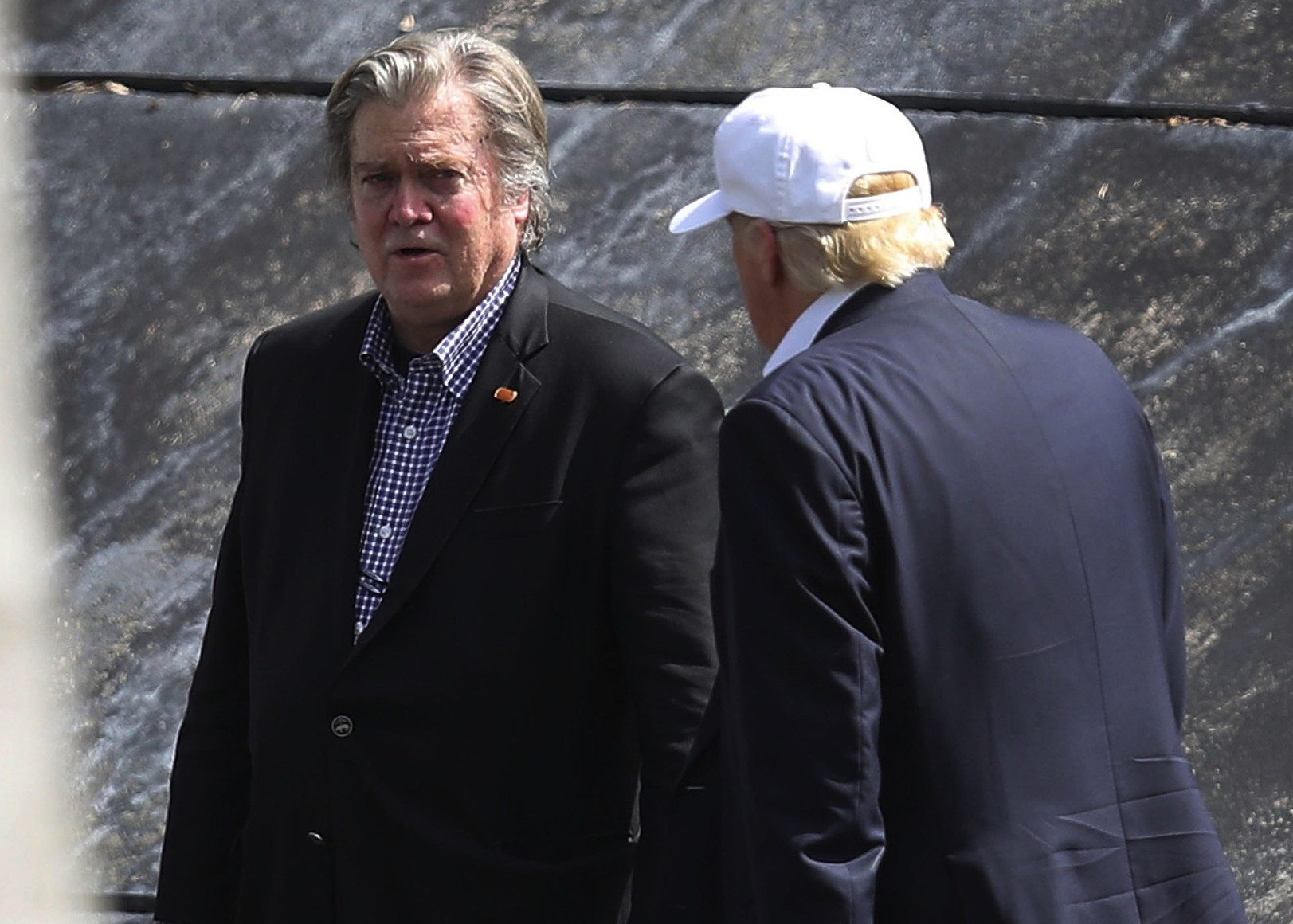
On November 10th, Trump sat down with President Obama, meeting him for the first time. This was the first of many meetings in the transition process between Trump’s inauguration and the end of President Obama’s term of office. Both the President and the President-Elect left the meeting with high praise for the other. The President has vowed to support the President-Elect in the transition process.
“We are now all rooting for his success in uniting and leading the country,” President Obama said in the White House Rose Garden.
Indeed, there are many who join him. Voters who supported Trump now feel hopeful about the country’s direction for the first time. However, if the popular vote is any indication, more are concerned. As Trump transitions into political power, he will have to balance the fears people have of his presidency with the promises he has made to his political base.
David Polsdorfer, Lima Charlie News
David Polsdorfer served in the United States Navy from 2008 until 2013 as a Cryptologic Technician Collector. He worked in the intelligence community at NIOC Hawaii and completed one tour to Afghanistan in 2011 as an LLVI operator. In 2014 he was selected to be part of The Daily Show’s Veteran Immersion Program and continued there as an intern in the fall. In 2015, he worked as a production assistant with Sara Taksler and Sarkasmos Productions, LLC on the documentary film, Tickling Giants. He recently received his Bachelor’s from Columbia University in Political Science. He writes and edits. Follow David on Twitter @DPolsdorferLC
Lima Charlie provides global news, insight & analysis by military veterans and service members Worldwide.
For up-to-date news, please follow us on twitter at @LimaCharlieNews

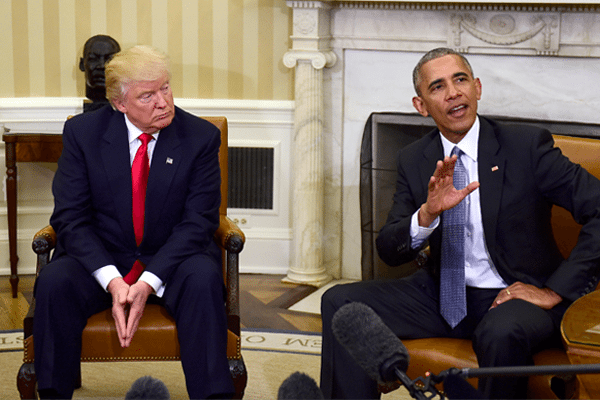
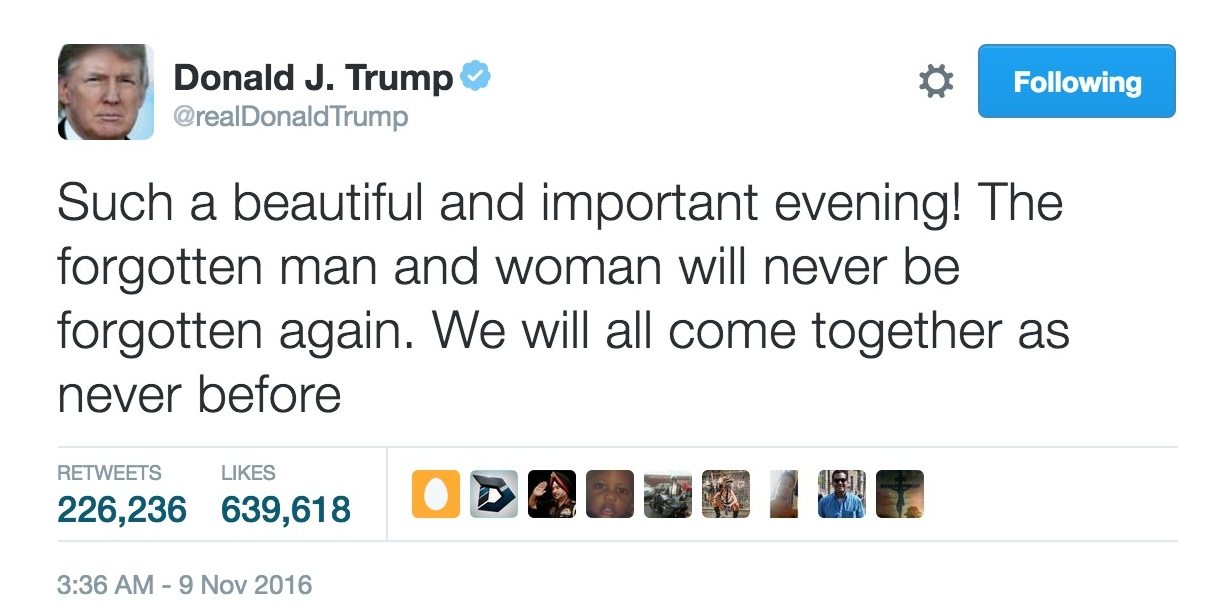
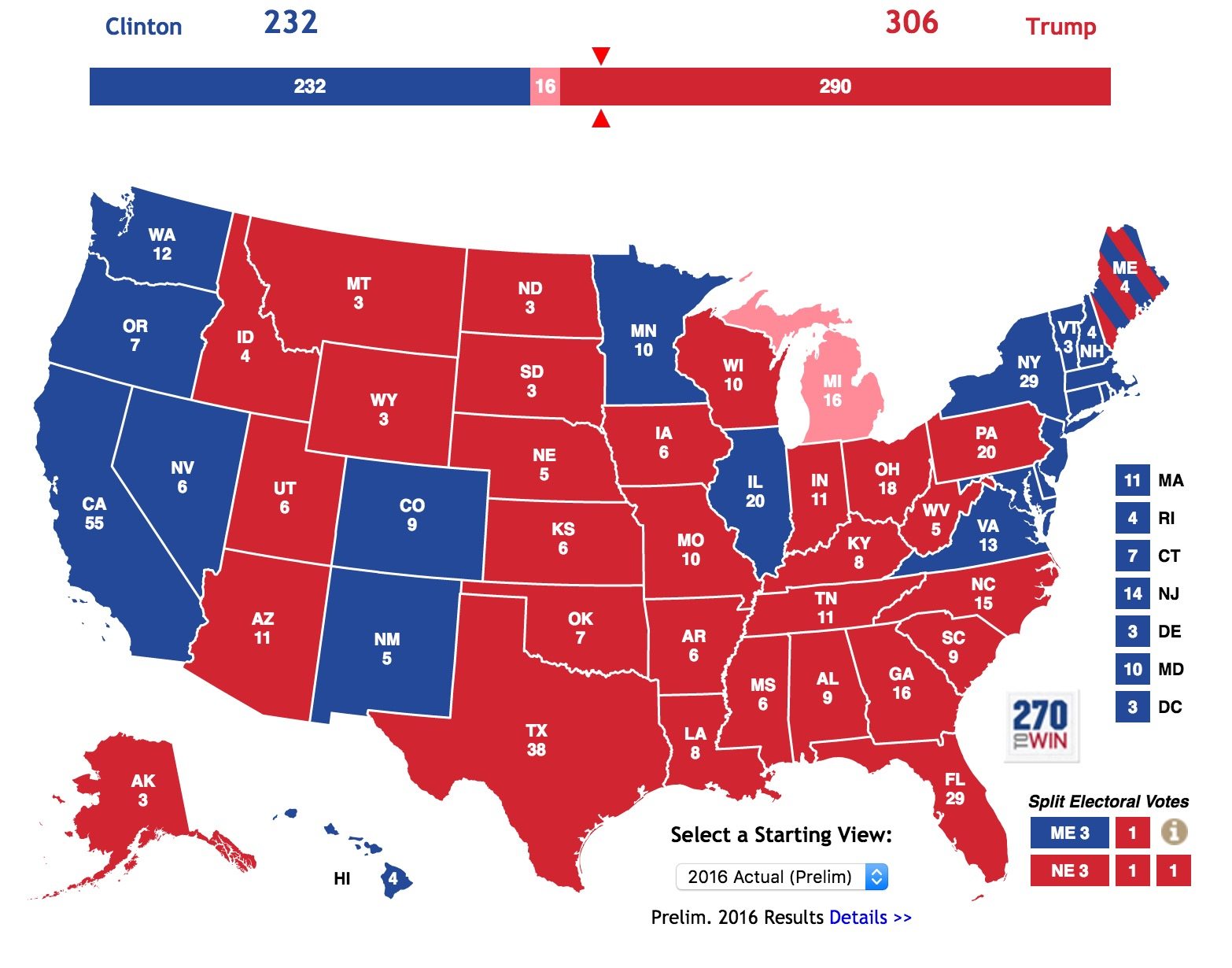
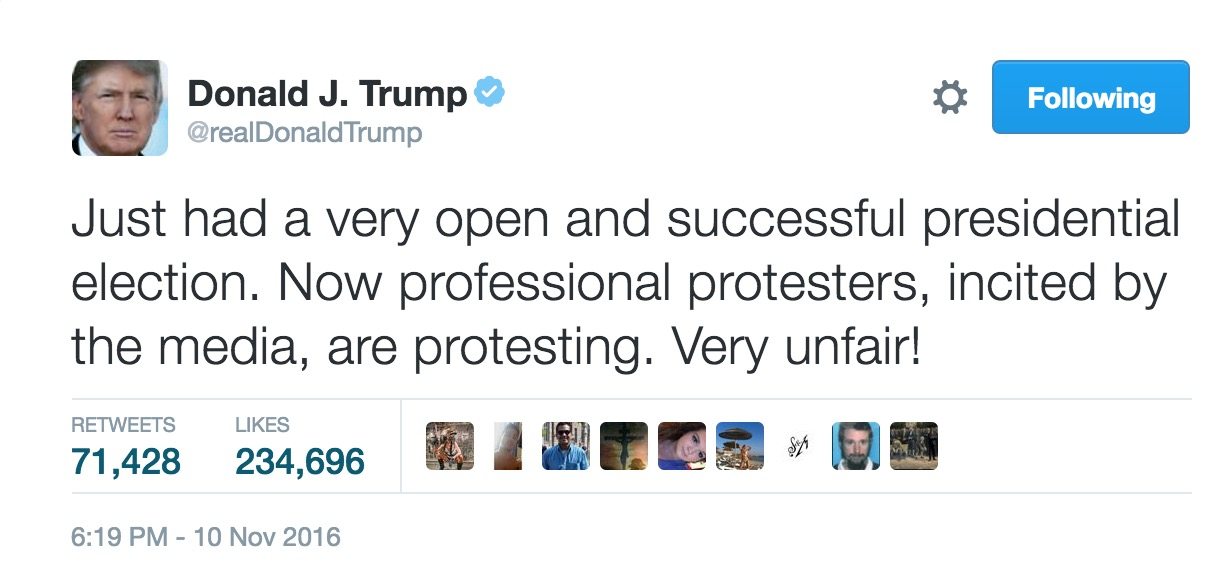
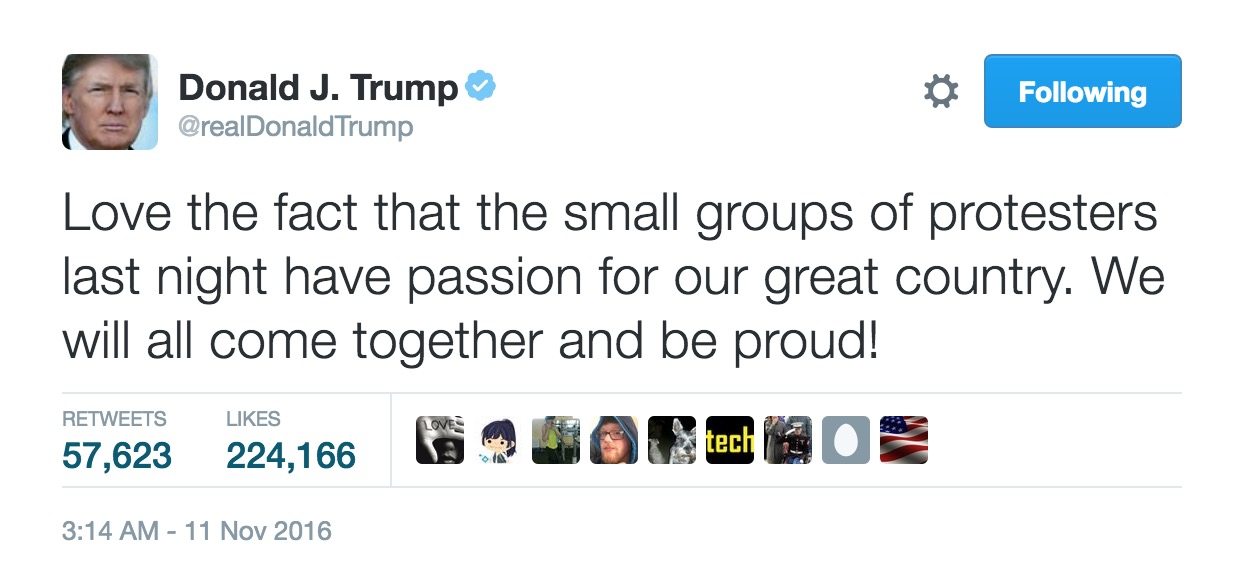


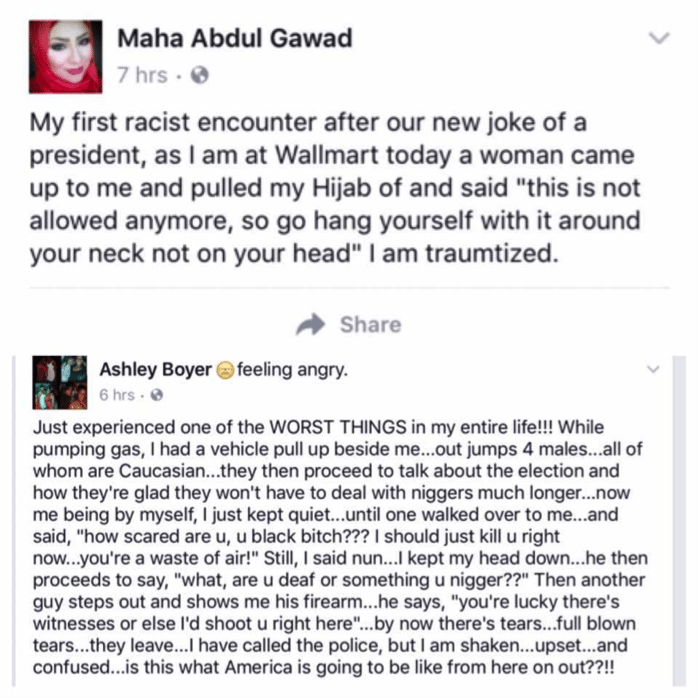


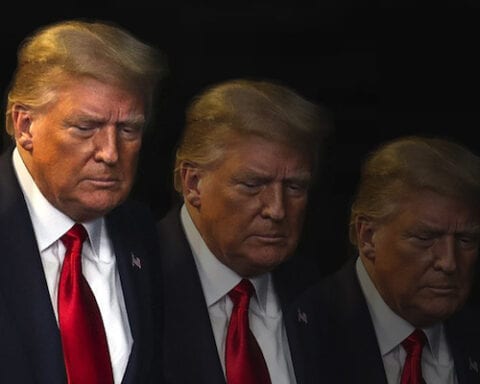



![Image Memorial Day may soon be a remembrance of democracy and those who had the courage to defend it [Lima Charlie News]](https://limacharlienews.com/wp-content/uploads/2018/05/Memorial-Day-may-soon-be-a-remembrance-of-democracy-and-those-who-had-the-courage-to-defend-it-Lima-Charlie-News-480x384.png)
![The Mind of Bolton - AUMF and the New Iran War [Lima Charlie News]](https://limacharlienews.com/wp-content/uploads/2019/05/Inside-the-mind-of-Bolton-Lima-Charlie-News-main-01-480x384.png)

